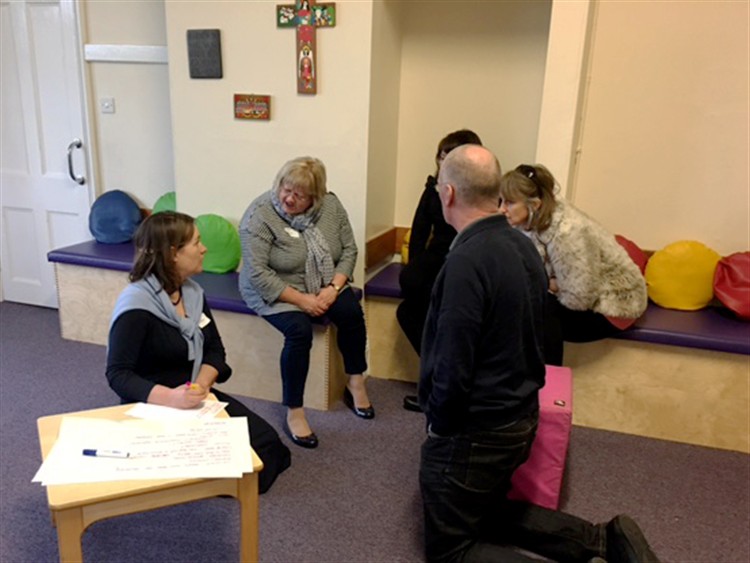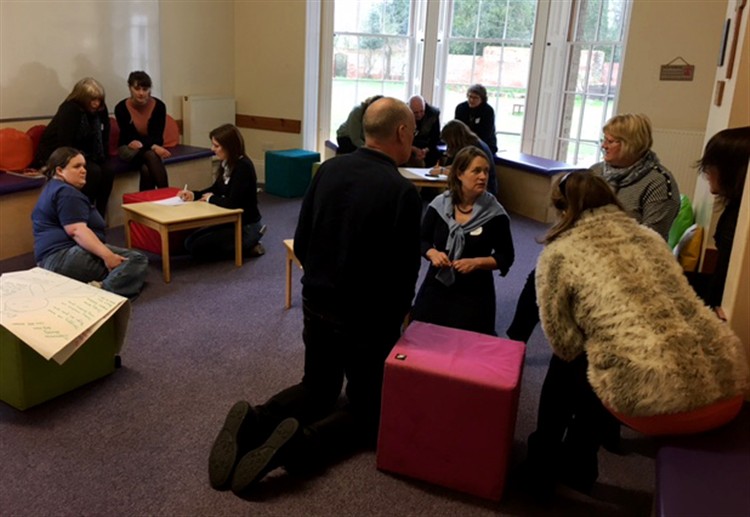Mental Health First Aid
As a volunteer with North Breckland Youth for Christ I work with a variety of young people in school lunch clubs, youth cafés and other events. Over the years I’ve seen young people struggling with their emotions and mental wellbeing for reasons such as bullying, bereavement, and family breakdown. In my own family, I’ve seen a close family member suffer a complete nervous breakdown and been through the torment of self-harm, anxiety and depression with my own child, so raising awareness of mental health has been something I’ve felt passionately about for a long time.
When the Diocese of Norwich offered Mental Health First Aid training run by the YMCA, I jumped at the opportunity to attend. As a parent, I have sat through many hours of counselling and therapy sessions, so I thought I had a fairly good knowledge of the early onset signs of mental health disorders, and the many self-help techniques that can be used, but willing to learn new things I attended the course anyway, and I’m so glad I did.
The two-day course was broken down into four sections covering problems such as anxiety, self-harm, and depression through to less-understood issues such as eating disorders and psychosis. The subjects were all handled sensitively and creatively, teaching us the signs to be aware of and giving us the skills to be able to listen without judgement and the confidence to act quickly and provide appropriate direction and information.

The coping techniques that were taught I have used many times since attending the course, both within a work setting and within our family. One example given was the ‘Stress Bucket’.
Imagine a bucket being filled. Everyday stresses and additional anxieties: exam pressure, insomnia, peer pressure, feeling a lack of support – quickly cause it to overflow. In the same way, if persistently overwhelmed, a young person may be vulnerable to feelings of anxiety, depression or one of the many other ways stress manifests itself. Showing how you can add a release tap halfway down the bucket by finding ways to allow the stresses to leak out, helps things become more manageable. Often we can be the tap on the bucket, by listening and supporting the young person through this stage in their life and using our first aid skills to identify if a young person needs further care.
The technique of the ‘one-armed seagull’ is also one of my favourites; a brilliant visual exercise using the steady rise and fall of your arm to help calm the breathing rate of a person suffering with a panic attack.
The participants on the course came from different backgrounds; private and secondary school teachers, youth workers, and the prison service. The diversity of the participants highlighted the fact that mental health disorders affect people from all walks of life, regardless of status, wealth or physical health. The course also taught us the need to be aware of our own mental wellbeing and use mindfulness techniques to alleviate stresses.
Most organisations wouldn’t hesitate to send their volunteers and staff to a physical first aid course, but this course offered so much valuable insight into mental health disorders, I would consider it a must for any organisation working with children and young people.

This article was first published in the bimonthly magazine of the Diocese of Norwich - see more at www.dioceseofnorwich.org/magazine and look for the Sept-Oct 2017 edition.
Debra Green, 25/09/2017